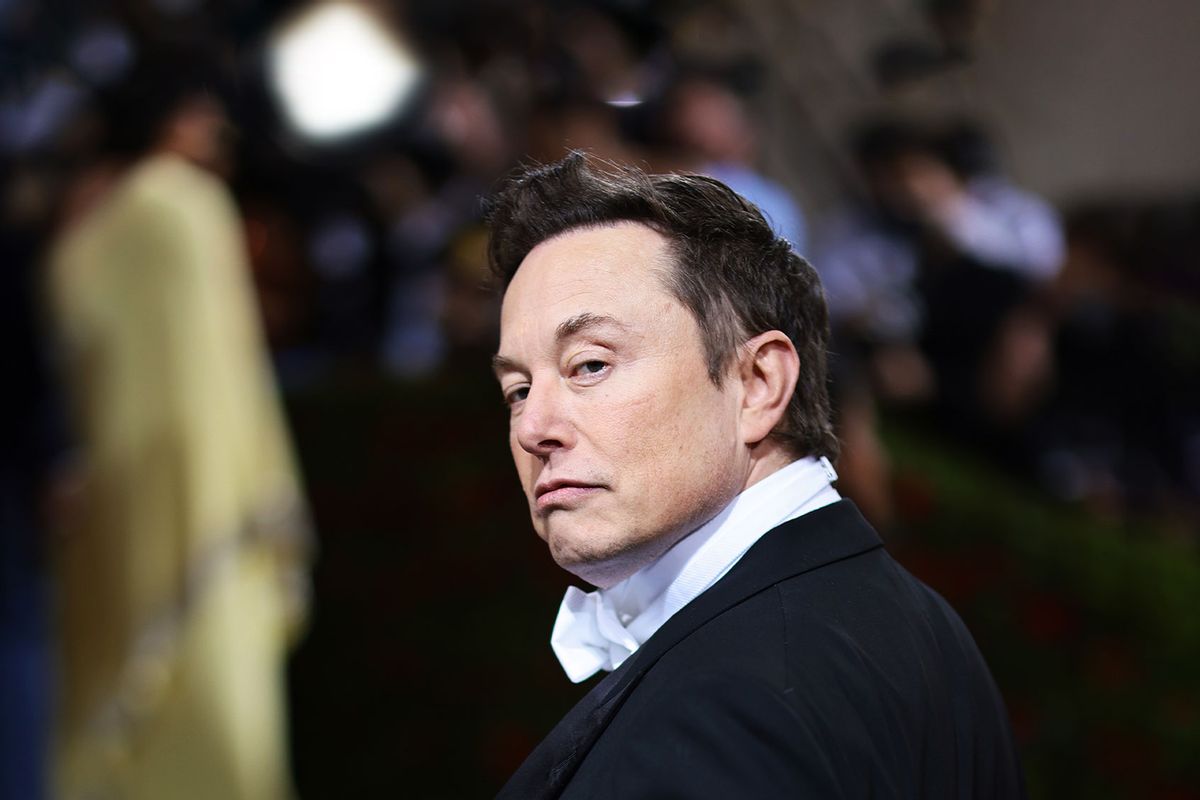Free speech warrior Elon Musk bans, vows “legal action” against student for tweeting public info

Billionaire Twitter owner Elon Musk has framed his takeover of Twitter as essential for the future of free speech and even civilization itself, even though he tried for months to get out of the deal and was sued by the company in an attempt to force him to buy it. Since the takeover, Musk has unbanned countless accounts that spread misinformation and incited violence, including former President Donald Trump, while attacking previous Twitter executives for restricting free speech and enforcing rules that did not exist. But now Musk is suddenly banning accounts that share public information and threatening to sue a 20-year-old college student for posting his publicly-available flight information on the platform.
Musk has long been frustrated by the Twitter account @elonjet, set up in 2020 by Jack Sweeney, a young Musk superfan, to track the billionaire’s private jet flights using publicly available information. Musk asked Sweeney, who also ran the popular @CelebJets account that exposed the wealthy and famous taking short private jet flights, to take down the account for $5,000 in January, calling it a “security risk” and saying he didn’t want to be “shot by a nutcase,” according to Protocol.
Musk after buying Twitter declared that his commitment to free speech is so absolute that it “extends even to not banning the account following my plane, even though that is a direct personal safety risk.”
That didn’t last long. Twitter appended a fact-check to Musk’s tweet on Thursday to note that the account has since been banned. The site also banned @CelebJets, Sweeney’s personal account and other accounts that tracked flight paths, and even banned links to their accounts on other platforms like Instagram.
The bans came after Twitter suddenly changed its policy to suit Musk’s desires on Wednesday. The new exceptionally broad policy bans “live location information, including information shared to Twitter directly or links to 3rd-party URL(s) of travel routes, actual physical location, or other identifying information that would reveal a person’s location, regardless if this information is publicly available.”
“Real-time posting of someone else’s location violates doxxing policy, but delayed posting of locations are ok,” Musk tweeted, even though publishing flight records is protected under the First Amendment, as noted by a fact-check appended to his tweet.
The rule change came after Musk complained for weeks about former Twitter executives changing content moderation rules on the fly to ban Trump and restrict access to an article about Hunter Biden’s laptop — as well as nude photos of him that were taken off the laptop.
“So posting someone’s dick pics is cool, but not their publicly available private plane flight logs?” the folks at local news outlet The Tennessee Holler questioned.
Journalists also raised questions about the broad nature of the policy.
“The total ambiguity of the rule — would it prohibit tweeting a picture you just took of Times Square, thereby disclosing the exact location of every stranger in it? — will give Musk a great deal of latitude in how and when it’s enforced,” wrote The Intercept’s Sam Biddle.
Want a daily wrap-up of all the news and commentary Salon has to offer? Subscribe to our morning newsletter, Crash Course.
Musk defended the policy change on Twitter and said that he would also take legal action against Sweeney. Musk claimed that on Monday, a car carrying his young son “was followed by a crazy stalked (thinking it was me), who later blocked” the car from moving and climbed onto the hood, tweeting a video showing the alleged stalker and his license plate, potentially in violation of Twitter’s doxxing rules.
“Legal action is being taken against Sweeney & organizations who supported harm to my family,” Musk wrote, even though it’s unclear how the jet-tracker can help people track cars or who is in them.
Musk provided no additional details on what Sweeney did wrong by publishing publicly available information. Sweeney “shared publicly available information about Musk’s flights, not his family members or his cars,” The Washington Post noted. “The records stopped and ended at airports, and Musk has provided no further detail as to what legal basis Musk would cite in a lawsuit.”
“He said this is free speech and he’s doing the opposite,” Sweeney told the Associated Press on Wednesday, adding that he suspects the ban was retaliation in response to him posting internal Twitter communications ordering the company’s Trust and Safety division to suppress the reach his account — essentially the same “shadow-banning” that Musk and his right-wing fans have decried.
“So if there’s harm to Musk or his family, then it isn’t free speech and it is restricted,” tweeted MSNBC host Mehdi Hasan. “Harm to anyone else or their families, it’s free speech – nay, it’s the future of Western civilization! – and there can be no restrictions. Got it?”
Talking Points Memo’s Josh Marshall called the ban “more child king behavior from an entitled freak.”
“But it’s also an example of something more general in our society: a belief that the ultra rich deserve additional protections precisely because their wealth has elevated them so far above ordinary mortals that special protections are needed to protect them from people not liking them, not believing they are accountable,” he wrote. “Anyway, Musk’s a clown. This is obviously not about safety. It’s about feelings,” he added.
“One way you can tell Elon Musk is a free speech absolutist,” wrote The Intercept’s Jon Schwarz, “is his plan to use the power of the state to crush someone for engaging in free speech.”
Read more
about Elon Musk’s Twitter mess

